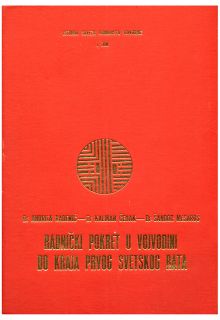SALLUST
THE JUGURTHINE WAR
THE CONSPIRACY OF CATALINE
Gaius Sallustius Crispus, usually anglicised as Sallust (/ˈsæləst/; 86 – c. 35 BC[1]), was a Roman historian, politician, and novus homo from a provincial plebeian family. Sallust was born at Amiternum in the country of the Sabines and was a popularis, an opponent of the old Roman aristocracy, throughout his career, and later a partisan of Julius Caesar. Sallust is the earliest known Roman historian with surviving works to his name, of which Catiline's War (about the conspiracy in 63 BC of L. Sergius Catilina), The Jugurthine War (about Rome's war against the Numidians from 111 to 105 BC), and the Histories (of which only fragments survive) are still extant. Sallust was primarily influenced by the Greek historian Thucydides and amassed great (and ill-gotten) wealth from his governorship of Africa
 |
THE CONSPIRACY OF CATILINEPREFACEEvery man who wishes to rise superior to the lower animals should strive his hardest to avoid living all his days in silent obscurity, like the beasts of the field, creatures which go with their faces to the ground and are the slaves of their bellies. We human beings have mental as well as physical powers; the mind, which we share with gods, is the ruling element in us, while the chief function of the body, which we have in common with the beasts, is to obey. Surely, therefore, it is our intellectual rather than our physical powers that we should use in the pursuit of fame. Since only a short span of life has been vouchsafed us, we must make ourselves remembered as long as may be by those who come after us. Wealth and beauty can give only a fleeting and perishable fame, but intellectual excellence is a glorious and everlasting possession... It is a pity that kings and rulers do not apply their mental powers as effectively to the preservation of peace as to the prosecution of war. If they did, human life would be less chequered and unstable than it is: we should not see everything drifting to and fro in change and confusion. Sovereignty can easily be maintained by the same qualities as enable a man to acquire it. But when idleness replaces industry, when self restraint and justice give place to lust and arrogance, the moral deterioration brings loss of station in its train. A degenerate ruler is always supplanted by a better man than himself... Success in agriculture, seafaring, or building always depends on human excellence. But many are the men who, slaves of gluttony and sloth, have gone through life ignorant and uncivilized, as if they were mere sojourners in a foreign land, reversing, surely, the order of nature by treating their bodies as means of gratification and their souls as mere encumbrances. It makes no odds, to my mind, whether such men live or die; alive or dead, no one ever hears of them. The truth is that no man really lives or gets any satisfaction out of life, unless he devotes all his energies, to some task and seeks fame by some notable achievement or by the cultivation of some admirable gift... ...................................................................................................................................... My earliest inclinations led me, like many other young men, to throw myself wholeheartedly into politics. There I found many things against me. Self-restraint, integrity, and virtue were disregarded; unscrupulous conduct, bribery, and profit- seeking were rife. And although, being a stranger to the vices that I saw practised on every hand, I looked on them with scorn, I was led astray by ambition and, with a young man’s weakness, could not tear myself away. However much I tried to dissociate myself from the prevailing corruption, my craving for advancement exposed me to the same odium and slander as all my rivals. After suffering manifold perils and hardships, peace of mind at last returned to me, and I decided that I must bid farewell to politics for good. But I had no intention of wasting my precious leisure in idleness and sloth, or of devoting my time to agriculture or hunting - tasks fit only for slaves. I had formerly been interested in history, and some work which I began in that field had been interrupted by my misguided political ambitions. I therefore took this up again, and decided to write accounts of some episodes in Roman history that seemed particularly worthy of record - a task for which I felt myself the better qualified inasmuch as I was unprejudiced by the hopes and fears of the party man. It is my intention to give a brief account, as accurate as I can make it, of the conspiracy of Catiline, a criminal enterprise which I consider specially memorable as being unprecedented in itself and fraught with unprecedented dangers to Rome. I must preface my narrative by a short description of Catiline’s character. Lucius Catiline was of noble birth. He had a powerful intellect and great physical strength, but a vicious and depraved...
O ŽENAMA U RIMUAbout this time Catiline is said to have gained many adherents of every condition, including a number of women who in their earlier days had lived extravagantly on money that they obtained by prostituting themselves, and then, when advancing age reduced their incomes without changing their luxurious tastes, had run headlong into debt. These women, he thought, would do good service by acting as agitators among the city slaves and organizing acts of incendiarism; their husbands, too, could be either induced to join his cause, or murdered. .................................................................................................................... Among their number was Sempronia, a woman who had committed many crimes that showed her to have the reckless daring of a man. Fortune had favoured her abundantly, not only with birth and beauty, but with a good husband and children. Well educated in Greek and Latin literature, she had greater skill in lyre-playing and dancing than there is any need for a respectable woman to acquire, besides many other accomplishments such as minister to dissipation. There was nothing that she set a smaller value on than seemliness and chastity, and she was as careless of her reputation as she was of her money. Her passions were so ardent that she more often made advances to men than they did to her. Many times already she had broken a solemn promise, repudiated a debt by perjury, and been an accessary to murder. At once self-indulgcnt and impecunious, she had gone headlong from bad to worse. Yet her abilities were not to be despised. She could write poetry, crack a joke, and converse at will with decorum, tender feeling, or wantonness; she was in fact a woman of ready wit and considerable charm. THE JUGURTHINE WARThrough the huge deserts until he reached the country of the Gaetulians, a savage, uncivilized race who at that time had never heard of Rome. Collecting a vast number of them, he trained them by slow degrees to keep ranks, follow the standards, and obey commands, and to perform the other duties of soldiers. He then approached intimate friends of King Bocchus of Mauretania enlisting their support by lavish presents and still more lavish promises. With their aid he obtained access to the king himself, and persuaded him to take up arms against the Romans. This proved an easier and simpler matter than it might otherwise have been because at the start of the Jugurthine war Bocchus had sent envoys to Rome asking for a treaty of alliance, and his proposal in spite of the advantage it offered for the conduct of the war just commenced had been rejected, thanks to the intrigues of a few men who, blinded by avarice, expected to be paid for everything they did, honourable or dishonourable... O ŽENAMA U SJEVERNOJ AFRICIMoreover, Jugurtha had married Bocchus’s daughter - though it is true such a tie does not count for much with Numidians and Moors, each of whom has as many wives as he can afford; ten or more are quite usual, and kings have a proportionately larger number. Thus their affection, instead of being concentrated on a single consort, is distributed among a whole harem of women all of them alike slightly regarded... |
SVETOZAR MARKOVIĆ IZ ČLANKA - O UJEDINJENOJ OMLADINI, NOVI SAD 1968
Borba za vodeće pozicije u Omladini kulminirala je uoči i za vreme Pete skupštine, održane avgusta 1870. u Novom Sadu.
***
ŽENSKO PITANJE
Peta je tačka takođe od reči do reči iz predloga za organizaciju. Njome se proklamuje i traži ravnopravnost žena u svim domenima, posebno u pravu na obrazovanje i rad. Tu stoji: „U svakome društvu nema prava bez dužnosti, niti dužnosti bez prava. Ono što daje prava svakome članu društva, to je njegov rad: svaki član, bez razlike pola, koji radi i privređuje u društvu, mora uživati sva prava bez razlike. Po ovome, Omladina priznaje potpunu ravnopravnost muškinja i ženskinja, a smatra kao prvu potrebu da se ženskinju pridadu jednaka prava na obrazovanje i rad kao i muškinju“. U ovoj formulaciji ističe se ravnopravnost žena u konkretnijem vidu nego u sličnim buržoasko-liberalnim formulacijama, i to na životnim pitanjima egzistencije, u područjima rada i obrazovanja, u kojima je njihova potčinjenost i zapostavljenost najvidnija, uprkos svim proklamacijama i obećanjima. Zato je Vladimir Jovanović, uz podršku Polita i drugih, pokušao da eliminiše revolucionarnu formulaciju i da je nadomesti lapidarnom deklaracijom: „Omladina priznaje ravnopravnost muškinja i ženskinja“. S obzirom da je ovde u pitanju bila jedna slobodarska teza, i pošto je, posle intervencije predstavnika žena, Drage Dejanović, došlo do spontanog izliva oduševljenja u prilog traženih konkretnih prava, protivnici su morali ustuknuti, i predložena tačka u Markovićevoj formulaciji, uz izostavljanje jedne suvišne reči („potpunu“), primljena je jednoglasno.
***
RELIGIJA
Sedma tačka imala je za cilj da eliminiše religiju, kao jabuku razdora, iz redova Omladine, s obzirom na različite veroispovesti nacije, i da je izdvoji iz kruga omladinskog interesovanja, s pozivom na tekovine nauke i svesti. Prema predlogu skupštinskog odbora, ona je glasila: „Naš narod podeljen je religijom na tri partije (da ne računamo unijate). Cilj je Omladine da ujedini srpski narod na osnovu nauke – na osnovu svesti, i po tome religija stoji van kruga omladinske radnje, a načela pravde, poštenja i uopšte načela morala moraju biti jednaka za ljude koji žive u jednom društvu“. Ovaj je tekst preuzet iz predloga za organizaciju izostavljanjem dela u kome je stajalo da: „Verovati čovek može šta hoće“. Pošto je izostavljeni deo sa ostavljenim, završnim delom, ispred koga je prvobitno stajao (ispred „a načela ...“), činio jednu celinu, Marković je tokom specijalne debate predložio da se završne reči o moralnim načelima izostave jer „ne znače ništa kad je ono pre izbrisano“.
Ova je tačka izazvala veliku diskusiju, sa gotovo najviše učesnika. Iako su čak mnogi liberalski omladinci stajali na areligioznim pozicijama, većina nije bila spremna da se saglasi sa suviše „revolucionarnim“ postavkama na račun religije. I cela sedma tačka morala je biti izostavljena.






















